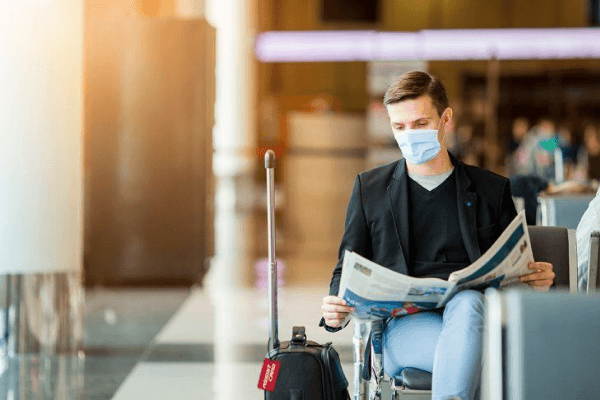
O Tourism has been heavily affected by the pandemic leaving thousands of tourists on the ground who, from their homes, were forced to travel digitally via their computer screens.
Just when a certain optimism, largely due to vaccination, was taking hold of consumers' morale, new variants emerge that lead the tourism and culture industry to have to find innovative solutions that respond effectively to customers' expectations and needs.
The recovery of the tourism and culture industry
Thanks to the vaccination and the lifting of various restrictions, in the second half of 2021 the travel bookings have started to increase. In the United States, for example, the number of travellers at airports more than doubled last summer compared to 2020, although still far from pre-pandemic figures.
The same seems to have happened in other parts of the world. During the summer, domestic travel within the Asia-Pacific region recovered some of the losses recorded in 2020, while in Europe travel returned in force thanks not only to an intense vaccination effort, but also to lower ticket prices.
Digital is the priority
Ultimately, the decisive factor in whether or not to book a leisure trip is the customer's shopping experience: from research and payment to travel safety and the travelling experience itself. There's no turning back; for today's consumers, the best experiences are those that allow a high degree of personalisation through the use of the smartphone not only to search and book online, but also to pay using QR Codes, contactless and digital wallets.
Being able to search, buy and follow the booking process online from anywhere is not only the ultimate in convenience, it is also the safest way to operate in such uncertain times as these, as it is essential to continue to maintain physical distance and avoid contact with surfaces.
Perhaps that's why it's no surprise that a Discover study June of this year reveals that 56% of the travellers surveyed say they intend to use contactless payment methods more often when travelling.
This need for a secure, contactless experience creates a major challenge for booking platforms, travel operators, hotels and merchants, regardless of the size of the business. While large companies can easily allocate funding to modernise their booking and payment technology infrastructures, smaller businesses will need to establish partnerships with digital solution providers in order to deliver a customer experience that is perfectly tailored to their needs.
As we've mentioned throughout this article, the booking and payment processes are critical to providing a perfect shopping experience, since 60% of the online shopping carts are abandoned before finalising the purchase due to friction, i.e.: the checkout process is too confusing, too slow or too difficult to complete from a smartphone.
If we add to these difficulties the growing concerns about payment security, it's easy to see why many consumers look for another travel operator, booking platform or even another shop (physical or online) to make their purchases.
What can consumers expect from the recovery of tourism and culture?
With these considerations in mind, the question that remains for consumers, and even for companies, is what should they expect with the gradual recovery of the Tourism and Culture industry?
Several studies have pointed to the success of vaccination programmes, effective testing and the implementation of tight and effective security measures as crucial factors in the recovery of tourism and culture.
However, the concerns don't stop at hygiene and safety. The easy choice of payment methods of purchases and reservations and the flexibility to cancel trips without penalty have now become decisive factors in consumers' decisions about whether or not to buy a trip.
As a result of this new type of prioritisation, the adoption of new payment technologies, which includes, for example, the contactlessFlexible cancellations are a prerequisite for consumers to travel more frequently, thus contributing to the recovery of the tourism and culture industry.
In travel and culture, as in most sectors, the pandemic has accelerated trends towards the personalisation and digitalisation of consumption, which puts additional pressure on economic agents to offer solutions that match needs, because now that consumers know how easy it is to buy and pay from the comfort of their homes, they expect this "digital touch" to extend to all the places and consumer experiences they seek.
* Article adapted from Discover® Global Network.


